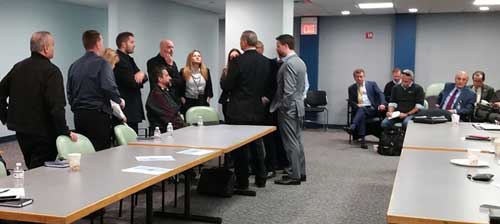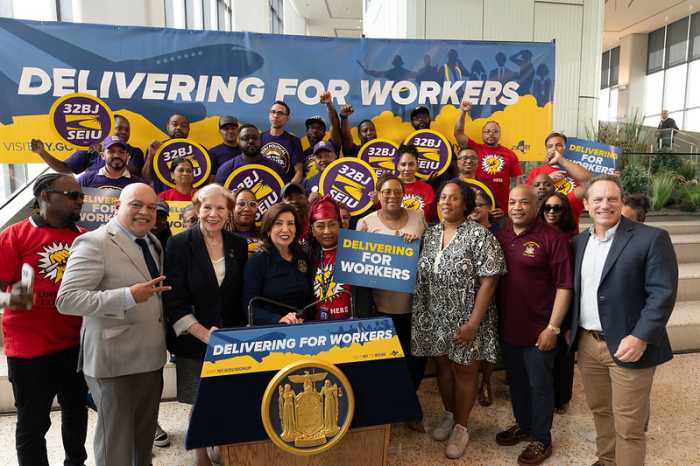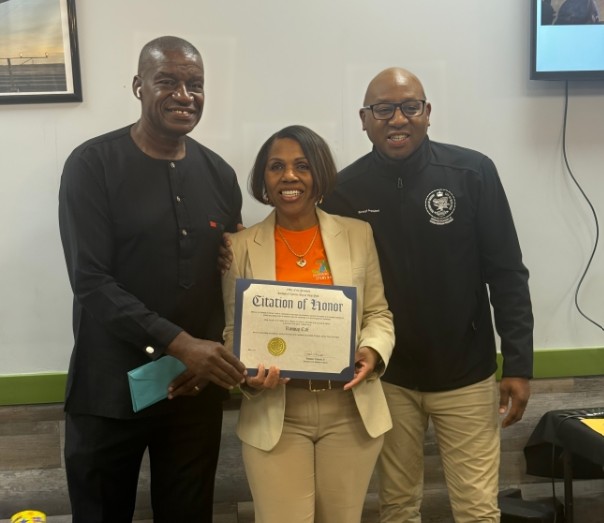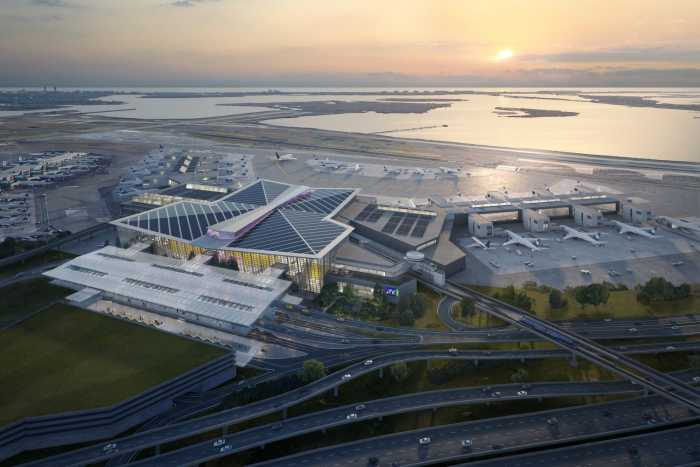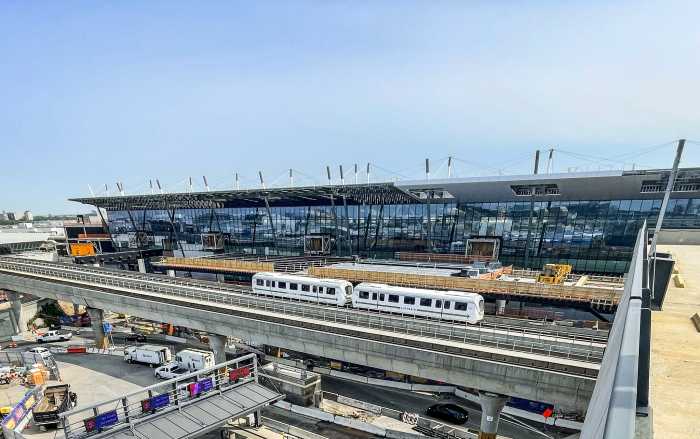The new Board of Directors presided over the January Kaamco meeting chaired by President Judy Blainey of Cargolux. The first and most important topic was the Bomb Cyclone that gripped JFK Airport and surrounding communities for days creating departure and arrival delays, flight diversions, hobbled ground ops due to the frigid temperatures, and the resultant issues of baggage unification with travelers.
Starting Thursday January 4th and lasting into early the next week JFK Airport suffered the most oppressive winter conditions that many airport veterans had ever seen. The blizzard brought blinding white-out snow on top of record breaking frigid temperatures that had been hovering in the area for more than a week. This made snow removal, scheduled flights, deicing, fueling, delays, and baggage handling most difficult. Extreme freezing temperatures shut down the airport and Airtrain for limited times creating backlogs and traffic as every company at the airport struggled to deal with the Might of Mother nature. To top things off, a frozen water main break in Terminal 4 hampered efforts to bring relief to stranded passengers, flight diversions and reunification of their checked baggage. The airport community had many meetings to prepare for the winter being prepared for snow storms and typical winter weather conditions and resultant issues.
Airline station managers at the Kaamco meeting had differing thoughts on how things could have been handled better, but the consensus was that the airlines have to work more closely during severe weather. A couple of managers recommended more conference calls during the storm period while other called for written procedures to be followed in extreme weather conditions and another calling for real-time hotline for the community..
It was recommended that the Kaamco Ground Operations group identify issues and assign teams to discuss and recommend changes. One manager said that although it was well intentioned, the process of recovery might be slowed down a bit so that everyone can catch up. One manager called for “collaborative decision making, everyone needs to be part of it,” saying events like this have and will happen and everyone needs to have shared information at the same time, all the time.” The feeling was that Port Authority is the conduit and the community needs to work together and agree to work together.
According to people very familiar with airport operations, each airline has their own agenda and business needs crating divergent needs when confronted with delays, closures, diversions and landing. With thousands of flights transiting through JFK daily, the common mission was to maintain traffic flow as long as airlines and operations could assure the safety of the passengers. As a consequence, the objectives of one airline were at odds with that of others and resulted in lack of communication or no communication from staff unable to take phone calls as they were dealing with pressing passenger and ramp demands. One manager said “We need to compromise, move forward and not make the same mistakes again”.

One of the ground operations people complained about the media coverage and felt tit was unfair. He said “ We did very well in sub zero temperatures. Why not focus on what we did right? We were victims of weather circumstances.”
Mike Moran, General Manager of JFK Airport said that an “after-action” will focus on the recovery from the effects from the storm. The Port and airline investigations will help identify issues so that “this will never happen again” according to a Port official. Moran promised transparency in the after-action report. He stated the need to make passenger safety the priority citing the implementation of the FAA tarmac delay operation by the Port Authority passenger relief plan which allows the Port to provide deplanement, sharing of facilities and safety for passengers which are what airlines normally are responsible. According to Moran, (25) such actions were taken during this storm in 5 degree weather and aided hundreds of passengers from sitting on planes awaiting a gate sitting on the tarmac.
On other airport matters, Police Inspector Roland was pleased to report on reduced crime and the new ambulance protocol. He that airport crime as down 20% over last year. He told the group that Jamaica Hospital is the new EMS provider with an excellent trauma center. Roland cautioned everyone not to call 911 in case of medical emergency but to call 718-244-4333 so the Police dispatch can coordinate with Jamaica EMS for prompt response.
The Port property department reported that the new minimum wage details are in place. This increase will be implemented throughout the airport and its contractors. There is already some push back from some of the airlines to the ground handlers which have to absorb this wage increase and pass it along to their customers. Discussions are under way to help all respond positively to this increase and share the costs involved for a smooth transition.
The new Security Permit is now in effect and all security companies are required to be in compliance as of January, 2018. However, the fee associated with this will not be in effect until January 2019 .The property department informed the Kaamco group that 25-30 companies have yet to provide the required paperwork.

The Airtrain manger reported that there will be an after-action report on the temporary suspension of service from Jamaica during the storm. It was stated that overcrowding was an issue since many passengers were unsure of their flights and status of the airport operations.
The FAA representative said that is was a shame to see the ongoing negative media coverage of the storm. The public is not aware of the framework in which the airport and international airlines operate he said. The FAA‘s job is to clear take-off and landings. It cannot close the airport to incoming international flights. If a pilot determines that it is in the best interested of safety to land despite a runway closure then the Pilot’s decision stands. But the FAA was pleased to cooperate with the airlines and the airport to assist in working out safe procedures to deal wit the weather adversity.
TSA FSD Bambury introduced John Essig as his new Deputy Director. Essig was Commander at the 112th Precinct in Queens. He officially assumes the role following James Fitzgerald who was acting Deputy Director now returning to Compliance Officer.


